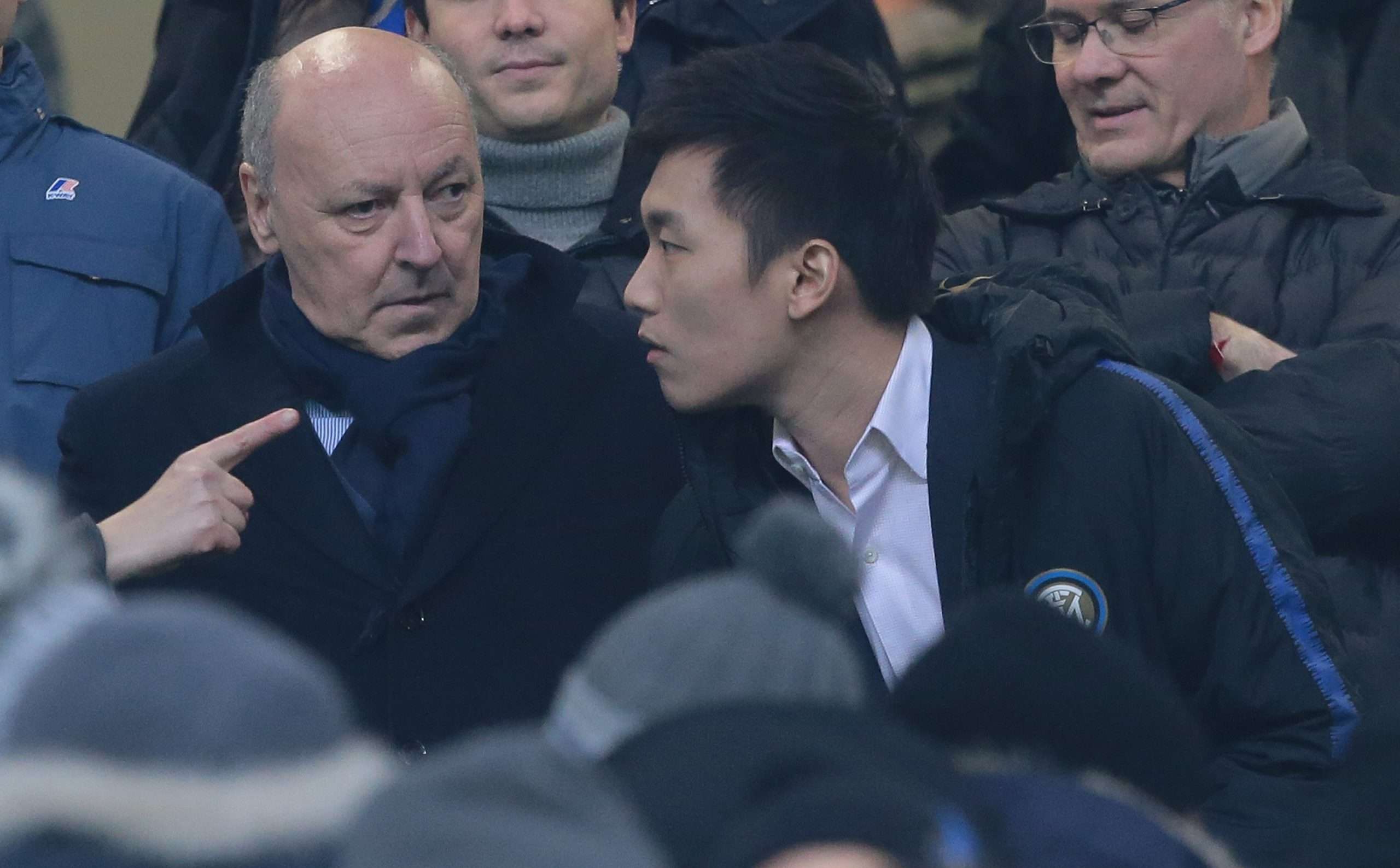This article is taken from Get Football’s new European Football publication, The Modern Footballer. In his dedicated Inter Milan club column, Rich Hall takes a look and an Inter side that has been reborn. An arduous decade has culminated in a new and exciting side, a revamped project and a promising future. Print and digital copies available here: http://bit.ly/TMFIssue1
INTER’S old President Massimo Moratti, either got it wrong or could not afford to address the facts. Inter’s treble winning team of 2010 was the end of an era, not the beginning. A decade on from those incredible scenes in Madrid, it is only now that the Nerazzurri finally believe they can break Juventus’ stranglehold on Serie A. Even more than this, they have faith, that, with one or two more transfer windows, they could even push deep into Europe’s elite competition. What has changed? Arguably, everything.
Ownership of a club can only affect so much. When Moratti eventually parted with his family club in 2013 – his father was president between 1955 and 1968 – the Indonesian businessman Erick Thohir, tried to build a club of the future but failed. His choice in sporting directors and coaches as well as his transfer policy all failed and produced some of the worst Inter teams in recent years.
Eventually, Suning Holdings Group and Chairman Steven Zhang, took control of the club. The marketing, PR and structure improved, they had to battle financial fair play yet they knew, if they succeeded, the economic power behind the group was immense. Perhaps the shrewdest move came when Zhang hired Beppe Marotta as CEO for sport. The ex-Juventus executive knew how to win – he had the blueprint.
Moratta only wanted one man. Whilst Luciano Spalletti had done an incredible job by getting Inter into the Champions’ League, he had run out of ideas and oversaw a disunited and fractious squad. Enter stage left, Antonio Conte. The serial Serie A winner and champion of the Premier League, a disciplinarian with a clear idea of how to play and how to act.
The change was immediate. All teams, from the primavera to the first team to the kids, would all play a version of his iconic 3-5-2. Conte too immediately identified the ‘bad apples’ and axed the likes of Ivan Perišić and Mauro Icardi. Both were exiled on loan, despite being two of the club’s best players, but he didn’t care and Marotta was right behind him. Now Conte was able to recruit players with tactical knowledge, intensity and work rate. The results have spoken for themselves.
There was one more thing that Conte and his team wanted to change. The culture of the club. Inter have been walking out to the song ‘Pazza Inter Amala’ for years. Conte wanted to take the crazy out of the Nerazzurri. After all, the Milanese’s best periods in their history have come when they have been organised and efficient. The reigns of Helenio Herrera, Giovanni Trapattoni, and José Mourinho are testament to this. No longer would Moratti be splashing money on exciting front men whilst neglecting the back. That was the old Inter, the new one will be modern, exciting and they would fight. The proof of this was in rocketing attendances. A corner had been turned.
Recruitment as mentioned, has also been improved. Romelu Lukaku perhaps being the symbol of this. Reborn under Conte, his relationship with Lautaro Martínez is an extra benefit that has brought goals. Loan deals and big money have brought in quality. Alexis Sánchez, Nicolò Barella, Christian Eriksen, Stefano Sensi and Diego Godín are just some of the arrivals that have impressed. Conte has been vocal about a deep squad and even Ashley Young and Victor Moses have been brought in as back up in January and have looked impressive early on. Now they are close on the heels of Juventus and are putting up a serious fight for the Scudetto.
The Marotta blueprint has put the Nerazzurri into overdrive. An interesting element for this new Inter is that Suning were ranked second among China’s top 500 private enterprises in 2018. This meant that they had an annual revenue of ¥557.875bn (approximately €77bn). As a result the Milanese will be able to compete with anyone in Serie A, and most foreign clubs, in the transfer market.
The future is bright. The transformation has been long awaited and you can sense the excitement in the city. Football is fashionable again, Inter are on the verge of becoming a European elite club once more and a decade of discontent may soon be forgotten.









